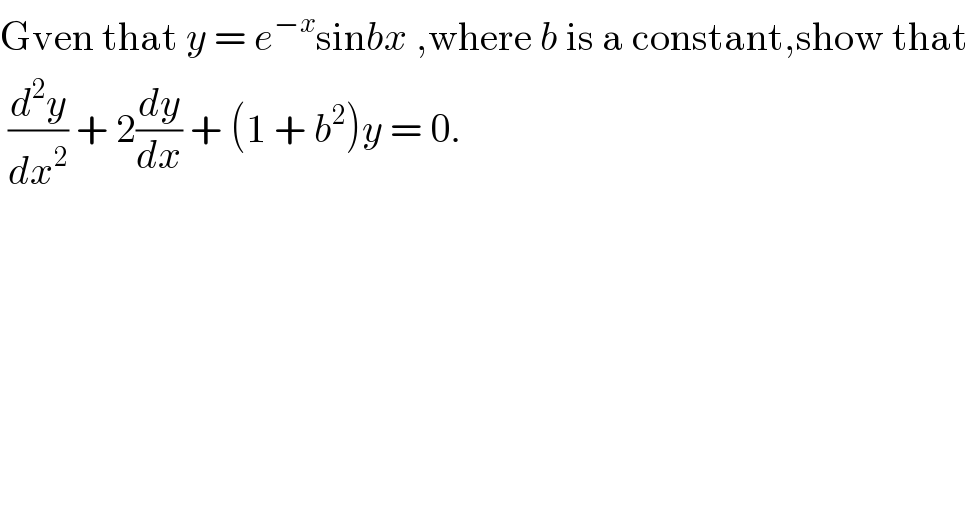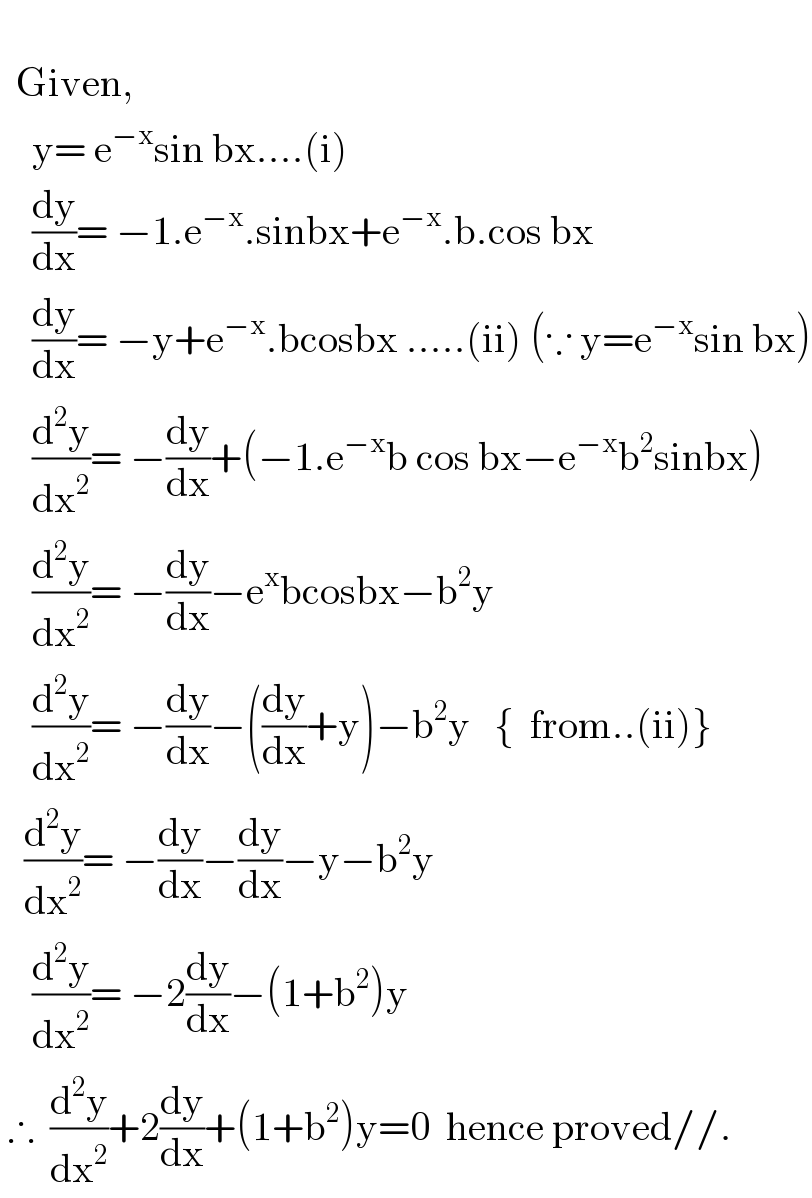
Question and Answers Forum
Question Number 83849 by Rio Michael last updated on 06/Mar/20

Commented by niroj last updated on 06/Mar/20

Commented by Rio Michael last updated on 06/Mar/20

Commented by niroj last updated on 07/Mar/20

| ||
Question and Answers Forum | ||
Question Number 83849 by Rio Michael last updated on 06/Mar/20 | ||
 | ||
Commented by niroj last updated on 06/Mar/20 | ||
 | ||
Commented by Rio Michael last updated on 06/Mar/20 | ||
 | ||
Commented by niroj last updated on 07/Mar/20 | ||
 | ||